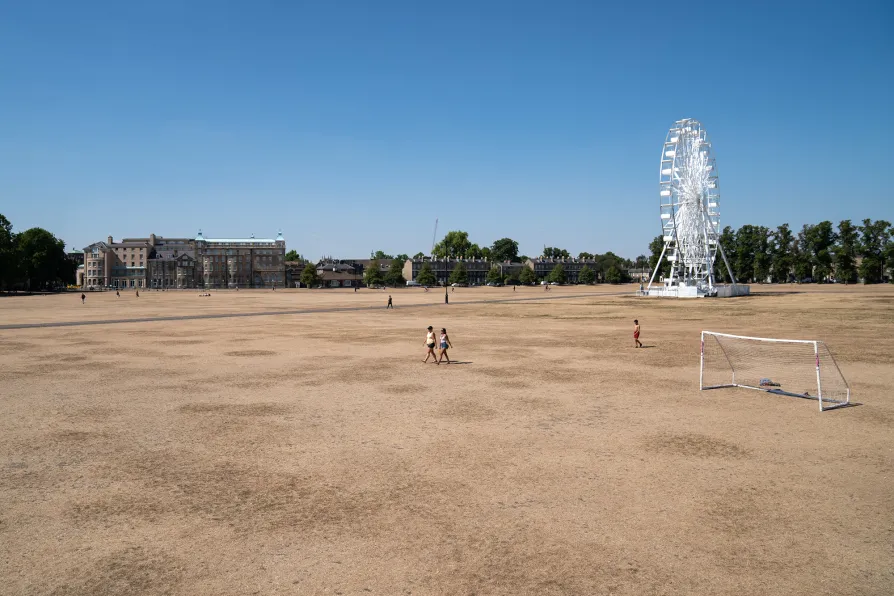Drought officially declared in several large regions across England

 Parched grass on Parker's Piece in Cambridge.
Parched grass on Parker's Piece in Cambridge.
A DROUGHT has been officially declared across large regions of England by a group of experts.
Parts of south-west, southern, eastern and central England have all been moved to official drought status following the driest first half of the year since 1976.
The decision was reached following a meeting by the National Drought Group — made up of civil servants, the Environment Agency, water companies and other groups including the National Farmers’ Union — on Friday morning.
Similar stories

Addressing new climate challenges will require co-ordinated efforts by governments and local authorities for both drought and flood risks — and it’s people power that will be key to getting policy implemented, writes DOUG SPECHT













